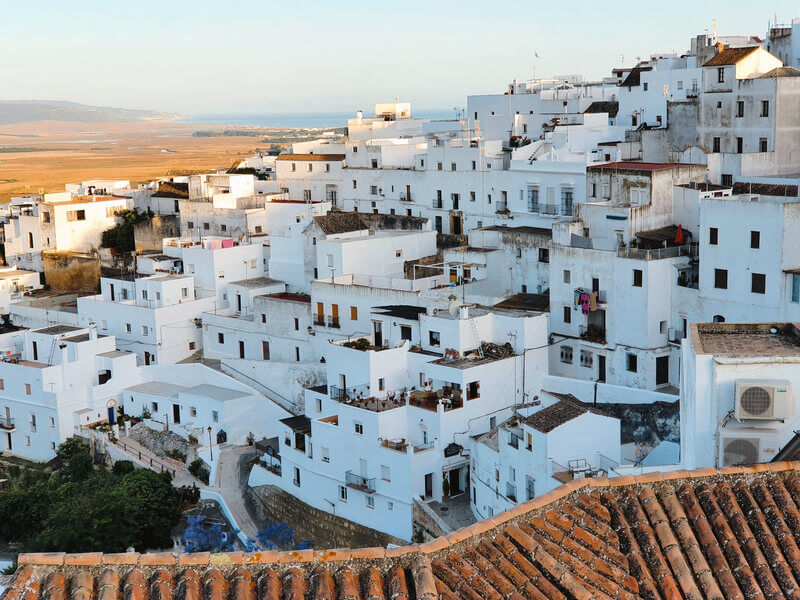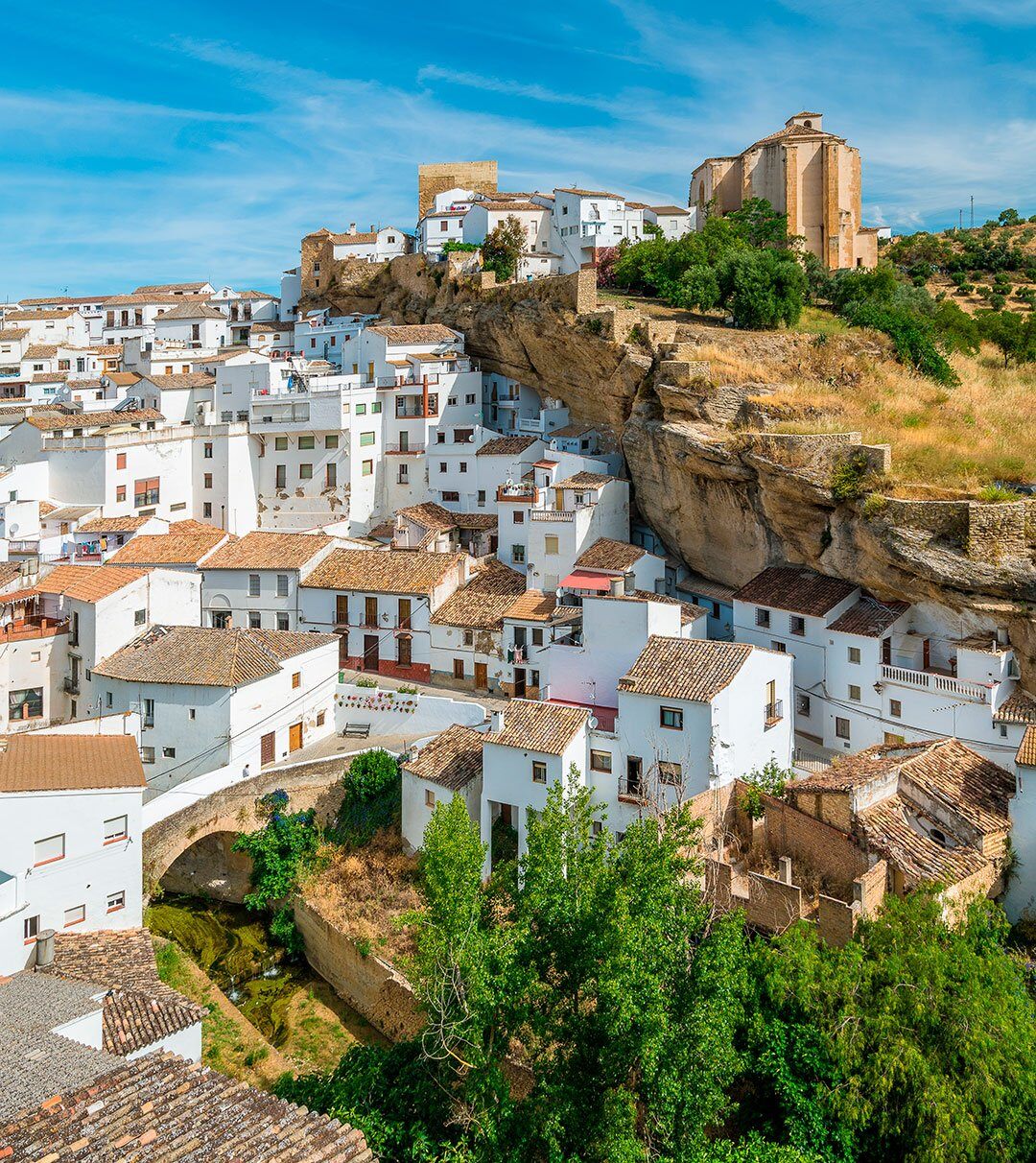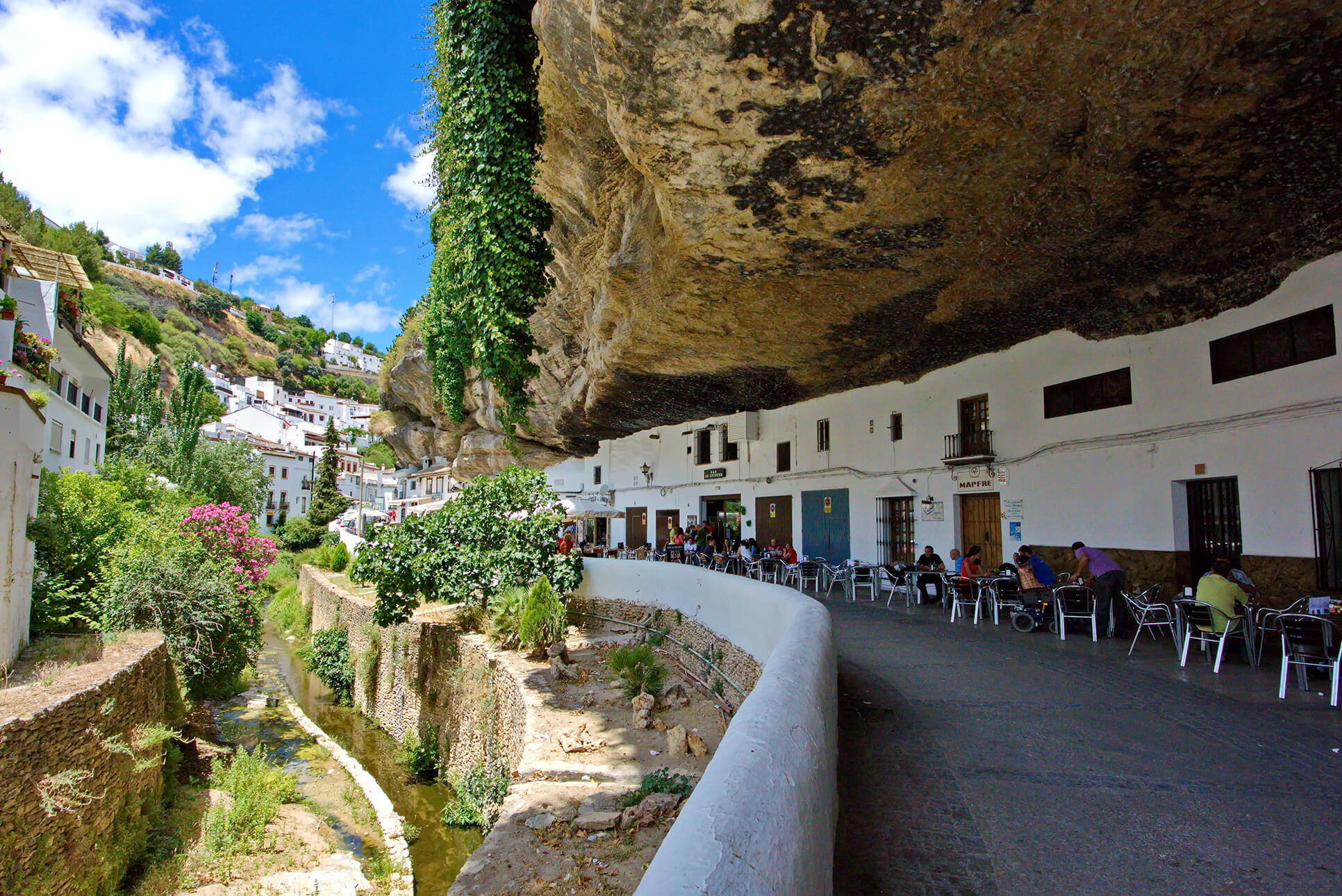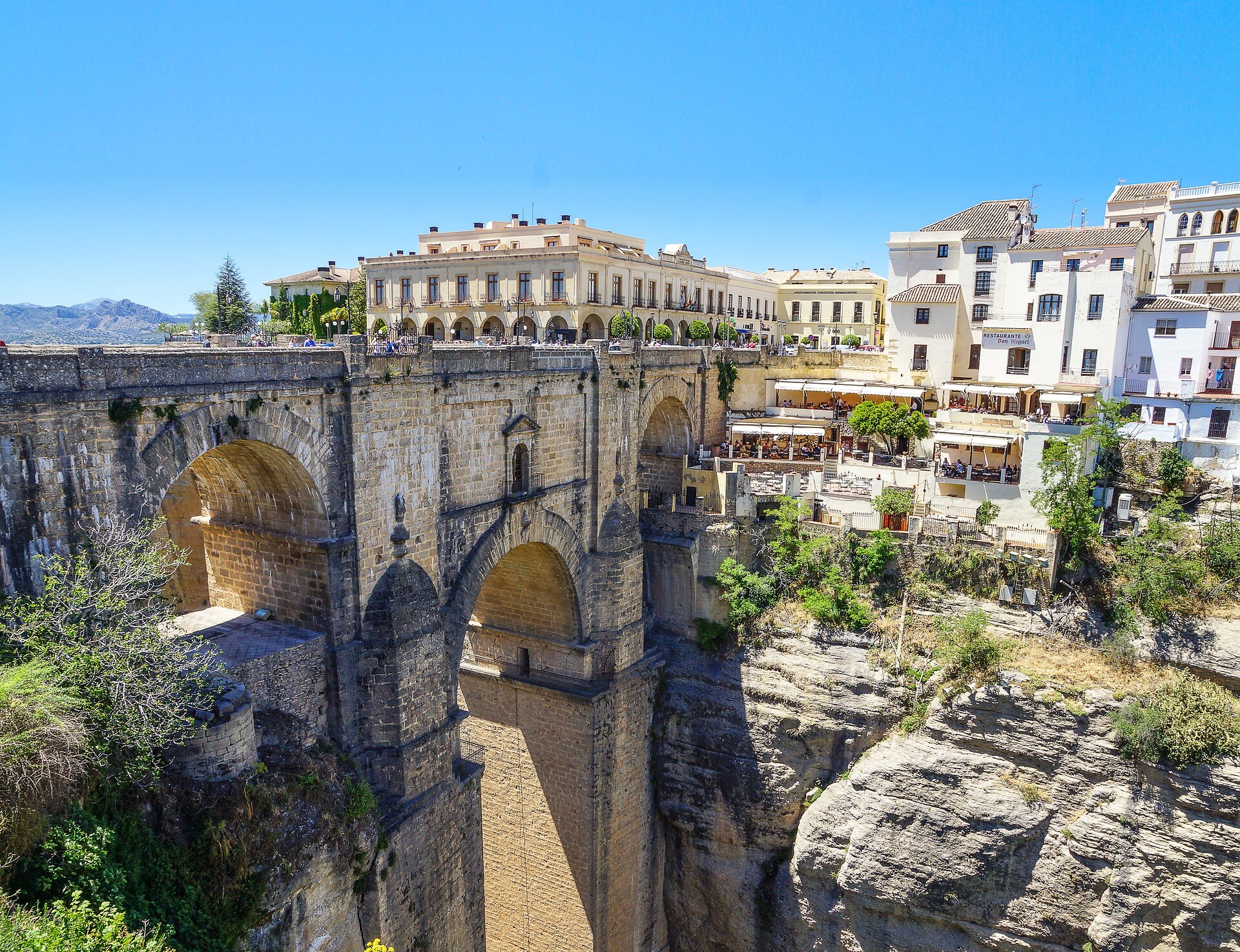Between the provinces of Cadiz and Malaga lies one of the most beautiful routes in Spain: the Route of the White Villages. Travelling to this area means entering a world full of nature, history and lots of architecture. Taking a route by car to get to know these villages is an unforgettable experience, and thanks to GoMore (called Amovens in Spain) between individuals, you can explore every corner at your own pace, in comfort and without worries.
The magic of the Pueblos Blancos
The Pueblos Blancos of Andalusia are famous for their whitewashed houses adorned with potted plants and colourful flowers, and their steep streets that end in charming squares. This region offers a unique landscape, where mountains and history intertwine, creating a perfect environment for rural tourism.
The area of Cádiz has its own route of the white villages which passes through 19 towns: Arcos de la Frontera, Bornos, Espera, Villamartín, Algodonales, El Gastor, Olvera, Torre Alháquime, Setenil de las Bodegas, Alcalá del Valle, Prado del Rey, El Bosque, Ubrique, Benaocaz, Villaluenga del Rosario, Grazalema, Zahara de la Sierra, Algar and Puerta Serrano.

Arcos de la Frontera: The Balcony of the Mountains
As the gateway to the Route of the White Villages, Arcos is considered one of the most beautiful villages in Spain. Strolling through its narrow streets is like stepping back in time. Its houses, with their flower-filled courtyards and ancient churches tell stories of centuries gone by.
The old town of Arcos de la Frontera is a magical experience. Its steep, labyrinthine streets are full of charm and transport you to another era.
The Basílica Menor de Santa María de la Asunción, with its impressive Gothic-Mudejar façade, is a must-see. Its interior surprises with a mixture of architectural styles that reflect the rich history of the region.
For incomparable panoramic views, the Mirador de la Peña Nueva is the perfect place. At sunset, the scenery becomes especially spectacular, with the Guadalete valley before your eyes.
The Palacio del Mayorazgo, a historic building which now houses the Municipal Archive and an exhibition hall, is an excellent example of Andalusian Renaissance architecture.
In addition, the Museum of Contemporary Art, housed in an old mill, offers an interesting collection of contemporary art that contrasts with the historic surroundings of the town.

Setenil de las Bodegas: A hidden jewel on the Ruta de los Pubelos Blancos
It is one of the most unique villages of the famous Route of the White Villages in Andalusia. What distinguishes Setenil is its incredible urban landscape, with houses and streets that seem to emerge directly from the rocks. Many of its houses are built under, in and on the rocky outcrops of the Trejo River gorge, creating a picturesque and unique environment.

Strolling through Setenil is like traveling back in time, with its network of narrow, steep streets winding through the rock formations. Places like the Calle de las Cuevas de la Sombra and the Calle de las Cuevas del Sol are perfect examples of how architecture and nature can coexist in harmony. In addition to its natural beauty, Setenil offers a rich local gastronomy, highlighting the sausages, oils and wines that reflect its agricultural heritage.
Ronda: The city of Tajo
Ronda is one of the most spectacular villages on the Route of the White Villages. Famous for its impressive New Bridge, which crosses the Tajo gorge, Ronda combines natural beauty and historical richness in a unique way.
The New Bridge, which dates back to the 18th century, is a masterpiece of engineering, spanning the Tagus River at a height of 98 metres and offering breathtaking views of the gorge and surrounding landscape.
The perfectly preserved Arab Baths are a testimony to the Islamic influence in the area. Its heating system and arches are particularly remarkable.
On the other hand, the Palace of Mondragón, of Arab origin and later modified in the Renaissance period, houses the Municipal Museum. Its gardens and courtyards will help you to find a great state of tranquillity and calm.
Also of note are the viewpoints of Aldehuela and Balcón del Coño, which offer spectacular views of the Tajo gorge and the Serranía de Ronda, perfect for capturing the beauty of Ronda with your mobile phone.

More White Villages to visit
In addition to Arcos de la Frontera, Vejer de la Frontera and Ronda, there are many other white villages worth a visit. These include Frigiliana, with its narrow streets and cane honey factory, and Casares, known for its Moorish castle and rich history. Each village has its own charm and offers unique experiences.
Nature, gastronomy and crafts
The White Villages Route also means direct contact with nature. On your trip, you can pass through the Serranía de Ronda Mountains, the Alcornocales Nature Reserve or the Sierra de Grazalema Nature Reserve. These areas are ideal for hiking and enjoying the tranquillity of the surroundings. In addition, the local gastronomy is a delight for the senses, with artisan products and traditional dishes that reflect the rich culinary culture of the region.
In terms of gastronomy, the Route of the White Villages is a true paradise for gourmets. The local cuisine is rich and varied, with Moorish influences that are reflected in dishes full of flavour and tradition. During your visit, don't miss the artisan cheeses of Grazalema and the cured meats of Ubrique. Andalusian cuisine stands out for its freshness and quality, with dishes such as gazpacho, migas, oxtail and salmorejo. In addition, the local sweets, such as buñuelos and pestiños, are the perfect finishing touch to any meal.
Handicrafts are another of the great attractions of this route. In each village, you will find workshops and shops where local craftsmen showcase their creativity. Ubrique is especially known for its leather crafts, with high-quality products ranging from handbags and wallets to jackets and belts. In Ronda, you can find handmade ceramics and wrought ironwork, while in Grazalema, woollen textiles and handmade blankets will not leave you indifferent. These products are not only perfect souvenirs of your trip, but also support the local economy and keep craft traditions alive.
The comfort of travelling with a rental car
Doing the White Villages Route by car gives you the freedom to explore at your own pace and discover hidden corners you wouldn't otherwise be able to see. With private car from GoMore, you can choose the car that best suits your needs. What's more, car rental from GoMore is not only convenient, but also economical and sustainable. By car sharing with other users, you contribute to reducing overproduction and leaving more space on the streets for people instead of parked cars.
An unforgettable journey
The Route of the White Villages is an experience that anyone who likes to travel should experience at least once in their lifetime. From the tranquillity of its landscapes to the richness of its history and culture, every moment in these villages is an opportunity to relax and enjoy.
Please share a comment in the form below, if you have input on this experience or if you know of other local experiences you would like to recommend.